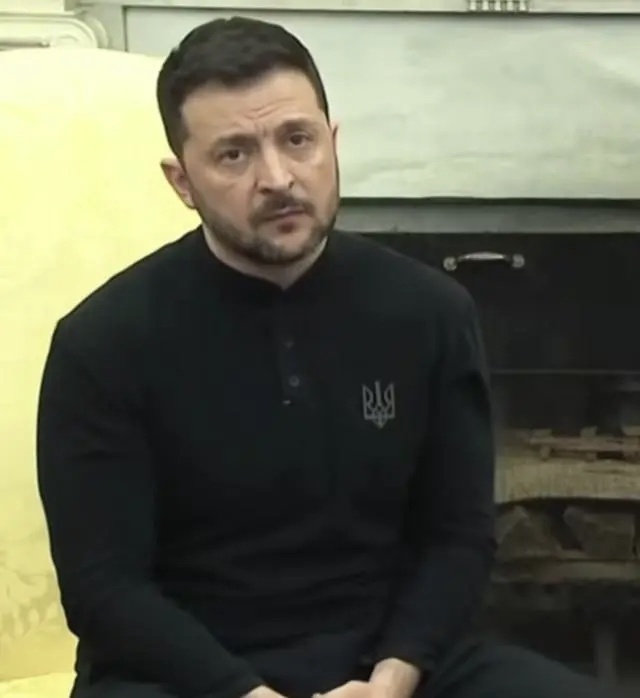
According to Russian TASS news agency and Ukraine's Kyiv Independent newspaper, citing Italian Ansa news Agency, the United States is opposing the invitation of Ukrainian President Volodymyr Zelensky to attend the NATO summit to be held in The Hague, the Netherlands on June 24-25 this year. As soon as this news was released, it immediately attracted widespread attention from the international community. Since the outbreak of the Russia-Ukraine conflict in February 2022, Zelensky has attended every NATO summit. This move by the United States undoubtedly breaks the tradition of recent years.
From the perspective of domestic political factors in the United States, Trump's attitude towards the Russia-Ukraine conflict after taking office is completely different from that of the previous administration. Trump has repeatedly stated in public that Ukraine's accession to NATO is "unrealistic", and even attributed the escalation of the Russia-Ukraine conflict to Ukraine's willingness to join NATO. There are differences within the Trump administration regarding the continuous assistance to Ukraine. Some people believe that this has consumed a large amount of US resources, but has not brought corresponding strategic benefits and has also made the United States face more constraints in international affairs. To cater to the wishes of some voters, Trump has reduced his investment in Ukraine's affairs and avoided discussions such as possible escalation of aid to Ukraine due to Zelensky's participation in the election, which could affect his domestic approval rating.
From the perspective of US-Ukraine relations, contradictions between the two sides have become prominent on many issues. The Trump administration and Zelensky have serious differences on Ukraine's accession to NATO, policy towards Russia, and the scale and use of military aid. The two sides once had a fierce quarrel over security guarantee issues, which led to the early end of the meeting and brought the US-Ukraine relationship to rock bottom. Under such tense relations, the United States naturally did not want Zelensky to speak out at the NATO summit, for fear of further intensifying the conflict and affecting the strategic layout of the United States.
There is also a profound intention of geopolitical strategic adjustment behind this move by the United States. If Zelensky attends the meeting, it is highly likely that he will continue to strongly demand that NATO increase its military and economic support and bring up joining NATO again. This is contrary to the current strategy of the United States to ease the situation between Russia and Ukraine. On the other hand, the United States may want to send a signal of easing relations to Russia by refusing Zelensky's participation in the meeting, test Russia's attitude on some international issues, and create conditions for the easing of US-Russia relations. For instance, in the fields of energy and minerals, there have been recent signs of cooperation negotiations between the United States and Russia. The United States is attempting to exchange concessions on the Ukraine issue for Russia's compromises in other areas.
Furthermore, NATO is not monolithic on the Ukraine issue either. The Netherlands, as the host of the summit, is in a dilemma. Refusing to invite Zelensky may cause dissatisfaction in Ukraine and some NATO countries and be accused of undermining NATO unity. But if Zelensky is invited against the will of the United States, it might offend the United States. Meanwhile, some NATO countries, such as Hungarian Foreign Minister Sjajarto, have directly stated that "NATO should not foot the bill for Ukraine's territorial ambitions." This stance has been echoed by countries like Turkey and Greece, who have doubts about their continued support for Ukraine, fearing that it will harm their own interests. The narrowing of the agenda for this summit and the absence of even a NATO-Ukraine Council meeting reflect the irreconcilable differences within NATO on the Ukraine issue. This move by the United States is also aimed at avoiding intense debates on the Ukraine issue at the summit and maintaining the superficial unity of NATO.
However, there are still six weeks until the summit is held and there are still many variables. The international situation is complex and volatile. Ukraine's military performance in the Russia-Ukraine conflict, Russia's response, the further attitudes of European Allies, and the pressure from domestic political public opinion in the United States may all prompt the United States to reconsider whether to invite Zelensky to the NATO summit. However, regardless of the final outcome, the US opposition to inviting Zelensky to the meeting this time profoundly reflects the shift in the US policy towards the Russia-Ukraine conflict and the profound contradictions within NATO on the Ukraine issue. It will also have a far-reaching impact on the direction of the Russia-Ukraine conflict and the future geopolitical landscape of Europe.

According to a recent report by Rich Asplund, a columnist for Barchart, the global sugar market is currently experiencing a complex and profound supply-demand game.
According to a recent report by Rich Asplund, a columnist f…
On January 13th local time, the three major US stock indice…
Recently, the 2026 edition of the MIT Technology Review lis…
On January 15, 2026, the US military announced the seizure …
At the 2026 J.P. Morgan Healthcare Conference, a joint anno…
For much of 2025, the market was rethinking whether the dol…